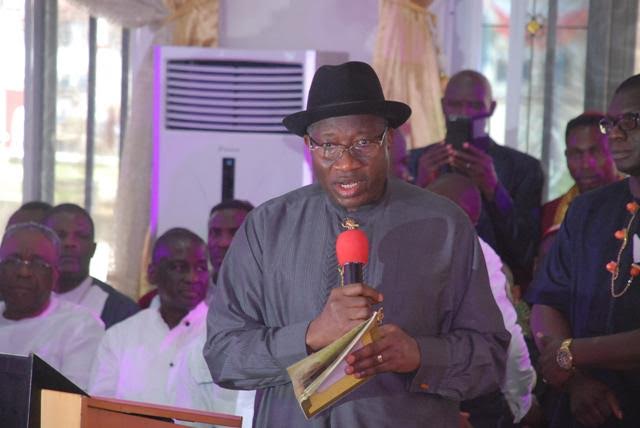Former President Goodluck Jonathan has said that he built the Nigeria’s democracy to a stage where the country will no longer have to wait for court judgments to conclude elections.
Jonathan said this at the sixth edition of African Ambassadors’ Interactive Forum and Dinner, organised by the African Third Sector Resource in Abuja, on Thursday, where he was presented with the ‘African Leadership & Achievement Award.’
The former president said by conceding defeat before the 2015 election result was declared, he wanted to set a new standard for the nation’s democracy and prove a point that election-related litigations should no longer define Nigeria’s democracy.
He said, “I always say that I reformed the democratic process as President in order to consolidate democracy in Nigeria and the sub-region. I conceded defeat without a fight because I wanted to set a standard for our democracy, going forward.
“My aim then was to change the narrative and prove that election-related litigations should no longer define Nigeria’s democracy. People must not always go to court and obtain judgments before elections in Nigeria are declared conclusive.
“We don’t get to hear about such court cases in mature democracies. I wanted us to get to that point in our democratic experience. I thought that it won’t be out of place if we get to that stage where those who lost elections will be able to congratulate those who won.”
The former President, who was represented by the former Minister of National Planning, Alhaji Abubakar Suleiman, recalled that already some agencies in the United States had predicted Nigeria’s disintegration following the growing tensions at the time, stressing that the country and indeed the African continent could have been doomed if Nigeria was allowed to slide into anarchy.
He said, ”Above all, what that decision did for me and the nation was to avert a looming crisis. Given the tension in the land as of that time, I was deeply contemplative of what would have happened if we had let our nation, the biggest black nation on earth, slide into anarchy, because of contestations for power. What then would have happened to our citizens, Nigeria’s economy and the investments driving its growth?
“I was convinced that the implications for peace and the economy of the sub-region and the rest of the continent, couldn’t have spelled anything else but doom.
“Recall that after the 2011 presidential election which most observers adjudged transparent, with my victory generally seen to have been well-deserved, crises and conflicts still surfaced that claimed the lives of many of our compatriots, and properties worth billions of naira destroyed.”
DP
